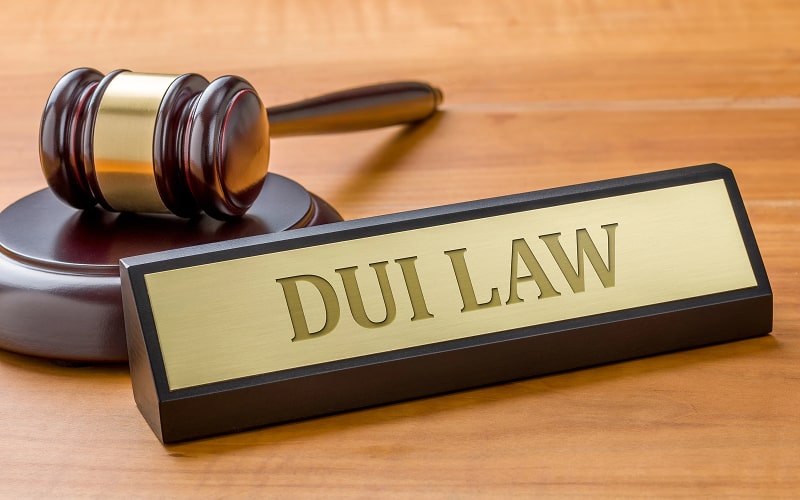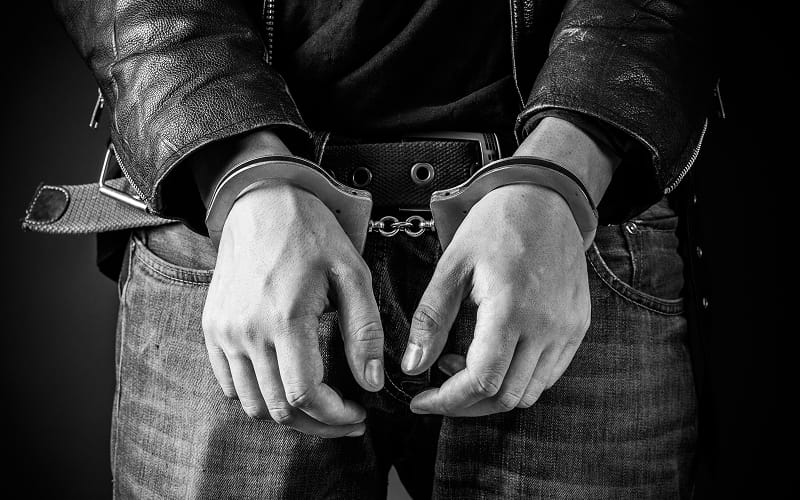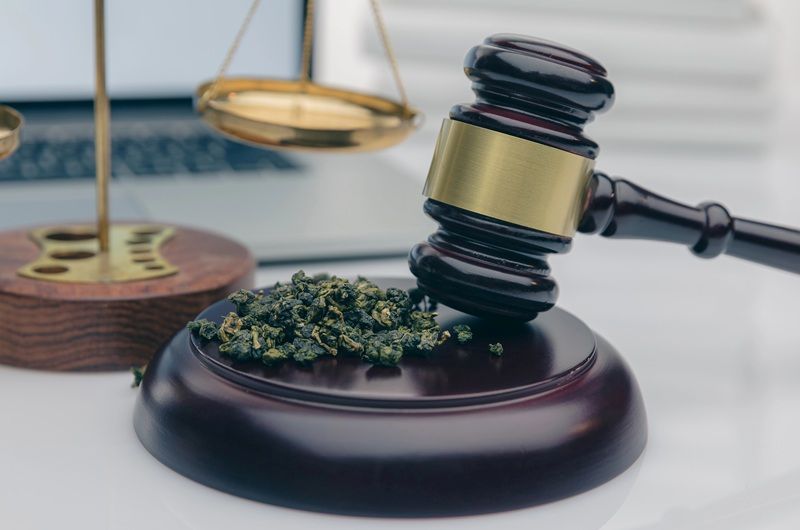A DUI stop can be one of the most nerve-wracking experiences for any driver. Flashing lights in your rearview mirror often bring a rush of anxiety, but staying calm and knowing what to do can make a major difference. Many drivers make mistakes during a stop that can negatively impact their case if charged with DUI. The key is understanding your rights and responsibilities before you’re ever in that situation.
Virginia has strict DUI laws, and officers are trained to look for signs of impairment. Whether you’ve had a drink or not, it’s essential to handle the stop correctly to avoid unnecessary legal trouble. This guide covers everything you need to know, from how to pull over safely to what to say (or not say) to the officer. By the end, you’ll learn how to protect yourself during a DUI stop and what steps to take next.

DUI Laws In Virginia: How They Work
Driving under the influence (DUI) is a serious offense in Virginia, with strict laws and harsh penalties. A driver is considered legally intoxicated if their blood alcohol concentration (BAC) is 0.08% or higher. However, for drivers under 21, the legal limit is just 0.02%, and for commercial drivers, it is 0.04%. Even if your BAC is below these limits, officers can still arrest you if they believe your ability to drive is impaired.
Virginia’s DUI penalties depend on several factors, including BAC level, prior offenses, and whether any property damage or injuries occurred. A first-time DUI conviction can result in a $250 fine, a one-year license suspension, and mandatory alcohol education classes. For repeat offenders, penalties become more severe, including longer license suspensions, higher fines, and even jail time. If an accident occurs due to DUI, the consequences can be life-changing.
Understanding these laws helps drivers recognize the risks and take DUI stops seriously. While many assume they can talk their way out of an arrest, officers are trained to detect impairment and gather evidence. The best approach is to be informed and prepared before getting pulled over.
Immediate Actions When Pulled Over
Seeing police lights in your mirror can make your heart race, but your response in the next few seconds matters. When you notice an officer signaling you to stop, turn on your blinker to acknowledge them. Look for a safe spot to pull over, such as a parking lot or the right shoulder of the road. Stopping too suddenly or in an unsafe place could raise suspicion or even put you at risk.
Once you have pulled over, put your vehicle in park, turn off the engine, and roll down your window. Keep both hands visible on the steering wheel to reassure the officer that you are not a threat. Staying composed and cooperative helps create a smoother interaction from the start.
Interaction With The Officer
When the officer approaches, remain calm and respectful. They will likely ask for your driver’s license, vehicle registration, and proof of insurance. Inform them of where these documents are before reaching for them to avoid any misunderstanding. Stay patient rather than making frantic movements if you struggle to find them.
Avoid admitting to drinking or answering questions about where you’ve been. Officers may ask, “Have you been drinking tonight?” but you are not required to answer. Instead, a polite response like, “I prefer not to answer,” protects your rights without being confrontational. Your words can be used against you, so less is often better.
Your Rights During The Stop
Many drivers talk too much during a DUI stop, hoping to talk their way out of trouble. However, the more you say, the more evidence you may unknowingly provide against yourself. You have the right to remain silent and are not obligated to answer questions about alcohol consumption or your whereabouts. Politely stating, “I prefer not to answer,” is all you must say.
Silence is not an admission of guilt, and it does not give the officer a reason to arrest you. However, remaining silent must be done respectfully to avoid escalating the situation. Officers may pressure you into answering, but standing firm is within your legal rights. Always keep your responses short and to the point.
Field Sobriety Tests

Field sobriety tests (FSTs) are physical and cognitive exercises to assess impairment. These may include walking straight, standing on one leg, or following an object with your eyes. While officers make it seem like you must comply, FSTs are voluntary in Virginia. Politely declining to participate can prevent the officer from gathering additional evidence against you.
Officers use FSTs to justify arrests, but they are not always accurate. Factors like medical conditions, uneven pavement, or nervousness can lead to a failed test even if you are sober. Since there is no penalty for refusal, many attorneys recommend declining them to avoid unnecessary complications.
Preliminary Breath Test (PBT)
A roadside breath test, or preliminary breath test (PBT), is often offered before an arrest to estimate BAC. This test is voluntary in Virginia, meaning you can refuse without immediate legal consequences. However, a refusal may prompt the officer to rely on other observations, increasing the likelihood of an arrest.
The results of a PBT are not always accurate and cannot be used as primary evidence in court. If you refuse, the officer may still arrest you based on other factors, but declining limits the evidence against you. Knowing your rights in this situation allows you to make a more informed decision.
Chemical Testing & Implied Consent
Virginia follows an implied consent law, meaning that you automatically agree to chemical testing by driving on state roads if lawfully arrested. Refusal carries automatic penalties if an officer arrests you and requests a breath or blood test. Unlike a roadside breath test, refusing a post-arrest chemical test leads to a one-year license suspension.
This law is designed to encourage compliance, but many drivers do not realize the difference between voluntary and mandatory tests. While you can refuse a preliminary breath test without legal penalties, refusing a chemical test after arrest leads to immediate consequences. Understanding this distinction is crucial for making the best decision during a stop.
Refusing a chemical test results in automatic license suspension, even if you are never convicted of DUI. A first offense carries a one-year suspension, while subsequent refusals lead to longer suspensions and additional penalties. This is separate from any criminal penalties, which may include fines, jail time, and required DUI education programs.
If you refuse a chemical test, seeking legal representation quickly is essential to fight for your driving rights. Knowing these laws helps you avoid making choices that worsen your situation.
After The Stop: Legal Proceedings & Defense
After a DUI arrest, the legal process moves quickly. The first step is the arraignment, where you are formally charged and informed of your rights. During this hearing, you will enter a plea guilty, not guilty, or no contest. If you plead not guilty, your case moves forward, and the court will set a trial date.
Attending all scheduled court appearances is critical. Missing a hearing can result in additional charges or even a warrant for your arrest. It is best to have legal representation at this stage to ensure you make informed decisions. A DUI charge carries serious penalties, so an attorney must guide you through the process.
A strong defense begins with a detailed examination of the arrest. Your attorney will review whether the officer had probable cause to stop you, how sobriety tests were conducted, and whether any of your rights were violated. If procedural errors occurred, they could weaken the prosecution’s case.
Common defenses include challenging the accuracy of breathalyzer results, questioning the reliability of field sobriety tests, and arguing that the stop itself was unlawful. Your defense strategy will depend on the details of your case, which is why early legal intervention is so important. The right approach can significantly impact the outcome of your case.
Fairfax County Criminal Attorneys Can Build A Strong Case
A DUI charge can turn your life upside down, but you don’t have to face it alone. Fairfax County Criminal Attorneys has extensive experience defending clients against DUI charges in Virginia. Our legal team understands the complexities of DUI laws and how to challenge the prosecution’s case.
They take a strategic approach to every case, from investigating the stop to questioning the accuracy of breath tests. No detail is overlooked, and every possible defense is explored. Our goal is to minimize penalties, protect your driving privileges, and, when possible, reduce or dismiss charges.
We understand that every DUI case is different, so we provide personalized attention and tailored defense strategies. We also keep clients informed, explain legal options clearly, and fight aggressively to protect their rights.
Facing a DUI charge is stressful, but with the right legal team, you can move forward with confidence. Don’t face a DUI case alone get the legal support you need today. Contact us and schedule your case evaluation.
A DUI stop can be overwhelming, but knowing your rights and taking the right steps can protect your future. From staying calm during the stop to understanding Virginia’s DUI laws, preparation is key. If you are charged with DUI, securing experienced legal representation should be your top priority.
Fairfax County Criminal Attorneys is committed to defending those accused of DUI and fighting for the best possible outcome. With knowledgeable attorneys on your side, you can challenge the charges and work toward a favorable resolution.




